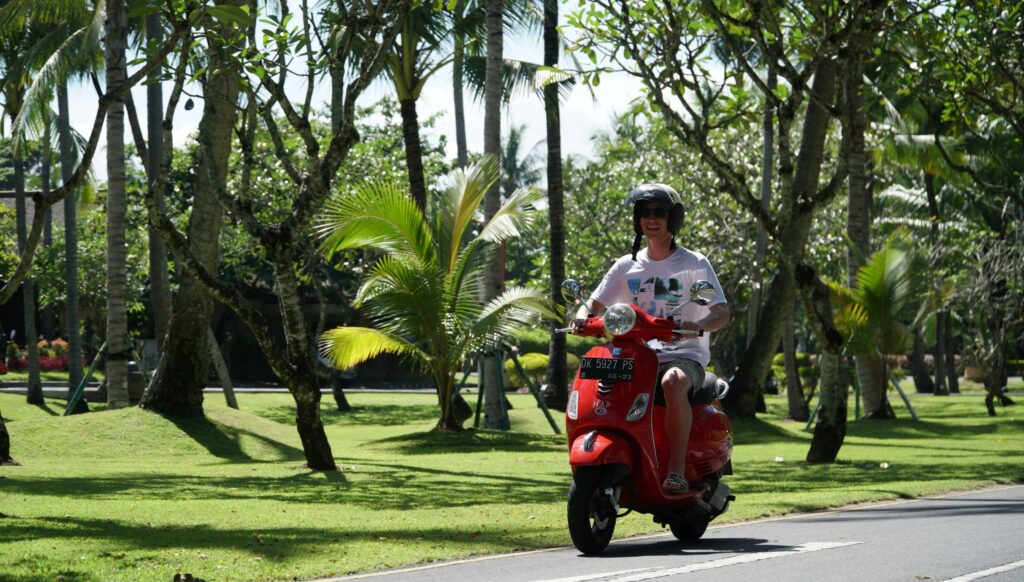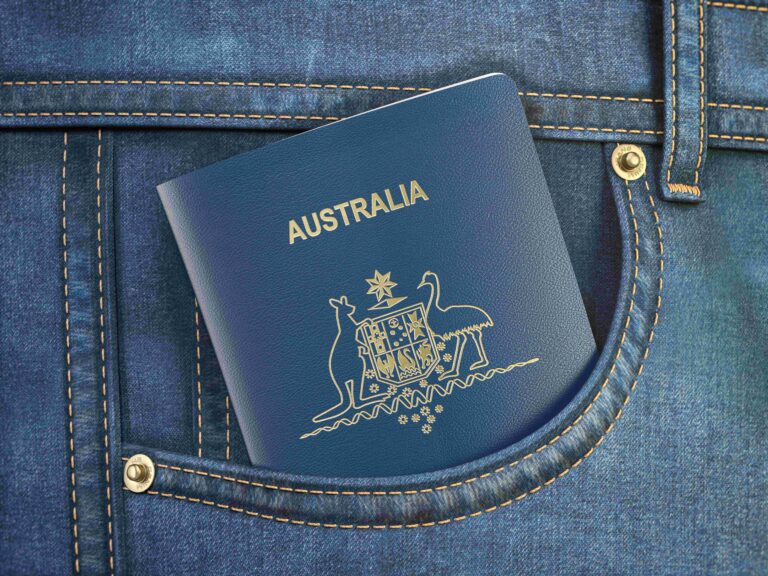Foreign tourists who come to Bali need to have a basic understanding of the local customs and laws that can impact how they should conduct themselves on holiday.
This is because due to some serious issues in the recent past, Bali authorities are taking such issues more seriously than they once did.
The good news is that these laws and customs are not particularly burdensome and if you approach your stay in Bali with respect for the Balinese people, it should be easy to stay out of trouble here on the island.
The Basics – The Do’s And Don’ts Of Bali That Might Not Be Obvious

Many of the behaviours that are unacceptable at Bali’s tourist attractions are unacceptable everywhere on Earth. However, the Balinese government has developed a helpful list of those behaviours that it feels may not be obvious to every visitor.
Do’s

You should respect the sanctity of sacred areas when visiting holy places, including sacred statues (known as “pratimas”) and other religious symbols
You should be respectful of the traditions, arts, culture, customs, and folk wisdom of the nation when people are engaged in ceremonial (or religious) processions and rituals
You should dress modestly when in sacred parts of the island, tourist attractions, and other public places in Bali (obviously, you are fine to wear beachwear on the beach)
You should interact with other people in a polite fashion in all public places including but not limited to sacred parts of the island, restaurants, hotels, bars, shopping areas, etc.
You should use the services of licensed tour guides when visiting compulsory guided visits and consider using a licensed tour guide when visiting any place of interest to tourists as they can offer input on customs, traditions, history, etc.
You should only exchange your cash for local currency at money changers that have been officially licensed by the government and that display the authorization numbers and QR codes provided by the Bank Indonesia
You should use the Indonesian Standard QR code (QRIS) when you make payments
You should only conduct trade in Indonesia using the local currency the Indonesian Rupiah
You must obey the local traffic regulations when driving in Indonesia and this includes having a valid local or international driving licence, following the rules of the road, dressing modestly, using a helmet, following the signs correctly, not overloading your bike with passengers and not driving under the influence of alcohol or drugs
You must ensure that your transport (if you are driving) is roadworthy and legally registered
You must stay in accommodation that is licensed for the purpose of receiving tourists
You must also obey any provisions and rules provided at any given tourist attraction or activity
Don’ts

Don’t stray into sacred sites for example those being used for utamaning mandala or madyaning mandala, unless you have been invited to attend the ceremony and you are wearing the correct attire and are not menstruating
Don’t touch sacred trees or sacred objects
Don’t defile holy places through disrespectful behaviour such as climbing on structures or taking nude/indecent photos
Don’t drop litter
Don’t use single-use plastics of any kind
Don’t swear or act disrespectfully or aggressively towards officials, local people or your fellow tourists
Don’t spread hate speech or hoaxes on social media (we should note that you can get in trouble for reporting the truth in a disrespectful manner on social media – it’s best not to say anything if it’s not something nice)
Don’t work or run a business if you’re not licensed to do so by the government
Don’t do anything else illegal

Recent Changes To Traffic Processes
Perhaps, the biggest area of concern is on Bali’s roads. Accidents are common and tourists regularly get injured or killed, often due to their own actions.
There is a new emphasis on enforcing traffic rules more strictly including:
Licensing checks prior to renting a scooter or motorbike. Authorities are pressing the rental companies to check that you’re road legal before hiring scooters out. If you are caught without a license, you may be fined 1 million IDR or face four months in prison.
Rental agencies must provide a decent helmet to each rider. In turn, riders will be expected to wear these helmets and can be fined if caught without. You should also be aware that your insurance is completely invalid if you don’t have a helmet on
What Happens If You Break These Rules?

It very much depends on the rule that you break and the circumstances. The law here in Bali is rather more nuanced than it is in the West.
While it’s not unknown for someone to be arrested and deported for social media actions such as when a Russian tourist took naked photos of themselves and posted them online on the slopes of the holy mountain, Mt. Agung, this isn’t the norm.
Mostly, you might be asked to apologize to the local community that you have offended and to think hard about your actions in future.
If you are deported, however, don’t think that you’ve earned a free flight home, you are required to pay for the flight (and it will usually be far more expensive than your usual return flight) and you may be placed in an immigration detention (even worse than a regular jail) until such a time as you stump up the cash (note: your embassy will not pay for this).
Breaking The Law Is Different
However, if you outright break the law, you might be facing bigger problems – such as the British woman who was given 6 months in jail when she slapped an immigration officer after she overstayed her visa.
It shouldn’t take a list of “new rules” in any destination to realize that assaulting a local official is going to get you in trouble.
Most of all, you should never get involved with illegal drugs here in Bali. There is no local appetite for leniency when it comes to these crimes and at best, if caught, you will spend a long time in “Hotel K” the notoriously unpleasant local prison and at worst, you could face the death penalty.
Indonesia has executed many foreigners for drug offences and it seems unlikely that any clemency will be granted in the event of a conviction.
FAQs

What Are The Laws In Bali For Tourists?
There are very few laws in Bali that are just for tourists. However, that doesn’t mean there are no laws that you should be aware of when visiting Bali.
Illegal activities can get you into serious trouble with relevant authorities particularly if you disrespect the cultural heritage of the nation.
What Are The New Rules For Unmarried Couples In Bali? Can Unmarried Couples Stay Together In Bali?
In 2022 the Indonesian government passed a controversial bill that made it illegal for unmarried couples to cohabit.
However, the governor of Bali was quick to reassure people that the law, which does not come into effect until 2025, is only enforceable if a “parent, spouse or child” complains to the police.
He also emphasized there would be no morality police visiting hotels, villas, etc. to enforce this law.
That means that in practice, foreign couples will be fine to continue sharing accommodation in Bali, no matter what their marital status may be.
However, we should note – that if you begin a relationship with an Indonesian citizen, this rule could be enforced if your partner’s spouse, parent or child comes to the police.
If you intend to travel around the rest of Indonesia, our reading is that relatively liberal destinations will follow Bali’s lead on this, but more conservative areas may enforce the rules more strictly and in Aceh Province, it’s worth noting that strict Shariah law applies to cohabiting couples.
That means you should read up on those places and make an informed decision about whether to share a room in them.

How Strict Are Drinking Laws In Bali?
Drinking laws in Bali are fairly relaxed. You can buy and drink alcohol in a wide range of establishments including mini-marts as well as the usual pubs, bars, restaurants, hotels, etc.
Though the legal drinking age is 21, it’s fair to say that this is rarely enforced strictly, and as long as you’re not making a fuss about things, you will probably be allowed to drink in most venues if you appear to be an adult.
Is There A New Tourist Tax In Bali?
Yes! As of, February 14th 2024, all visitors to Bali will need to pay 150,000 IDR each time they enter the island either by air or by sea. We’ve got a full guide to the tourist tax here.
The good news about the tourist tax is that it’s designed to help build infrastructure to benefit foreign tourists, so there’s an upside to paying the tourist tax and not just for the Balinese people.
Final Thoughts On Behaviour When Visiting Tourist Attractions In Bali

Foreign visitors don’t need to worry too much about getting in trouble at tourist attractions here in Bali, they just need to remember that they are often visiting sacred sites and thus, need to behave appropriately.
Bali is a very friendly place and the people here are super sympathetic in the event of a minor faux pas, they understand that foreign tourists in Bali don’t know all the local laws and customs.
However, international tourists should respect local customs whenever possible and in particular sacred places, religious ceremonies, traffic rules, etc.
The good news is that alcohol laws here in Bali aren’t very strict and we look forward to serving you a few drinks at FINNS, the world’s best beach club.
We’re big believers in responsible tourism and we know that when you’re visiting Bali, you will be looking to enjoy its cultural heritage and ensure that the local residents and local community remain happy to see visitors in the future too.









